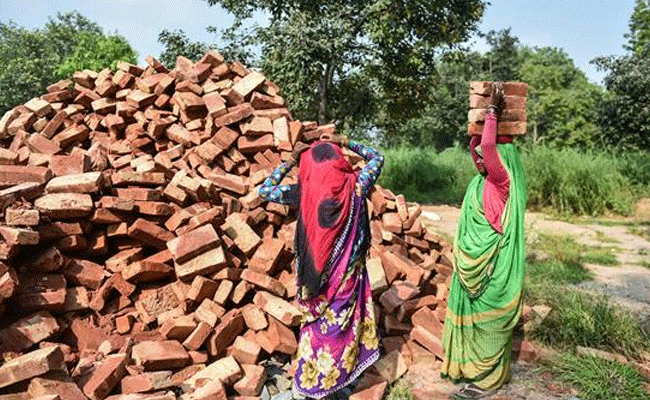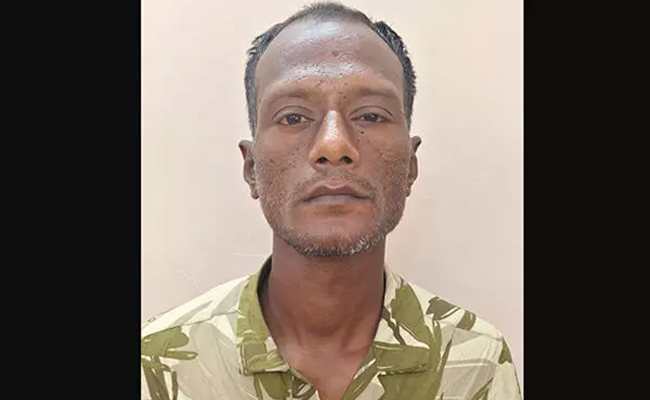United Nations(AP/PTI): The world's 20 richest countries are fuelling forced labour and account for over half the estimated 50 million people living in "modern slavery," according to a report released Wednesday.
The report by the Walk Free foundation, a rights group that focuses on modern slavery, said six members of the Group of 20 nations have the largest number of people in modern slavery either in forced labour or forced marriage.
India tops the list with 11 million followed by China with 5.8 million, Russia with 1.9 million, Indonesia with 1.8 million, Turkey with 1.3 million and the United States with 1.1 million.
"Most of the countries with lowest prevalence of modern slavery Switzerland, Norway, Germany, Netherlands, Sweden, Denmark, Belgium, Ireland, Japan, and Finland are also members of the G20," the report said.
"Yet, even in these countries, thousands of people continue to be forced to work or marry, despite their high levels of economic development, gender equality, social welfare, and political stability, as well as strong criminal justice systems."
Last September, a report by the U.N.'s International Labour Organization and International Organization for Migration and Walk Free estimated that 50 million people were living in "modern slavery" 28 million in forced labour and 22 million in forced marriage - at the end of 2021. That was a 10 million increase in just five years from the end of 2016.
"Modern slavery permeates every aspect of our society," Walk Free Founding Director Grace Forrest said in a statement. "It is woven through our clothes, lights up our electronics and seasons our food" and it "is a mirror held to power, reflecting who in any given society has it and who does not."
This is most evident in global supply chains, where G20 nations import 468 million worth of products annually considered "at risk" of being produced by forced labor including electronics, garments, palm oil, solar panels and textiles, the report said.
Australia-based Walk Free said its 172-page report and estimates of global slavery in 160 countries draw on thousands of interviews with survivors collected through nationally representative household surveys and its assessments of a nation's vulnerability.
It said the increase of nearly 10 million people forced to work or marry reflects the impact of compounding crises "more complex armed conflicts, widespread environmental degradation, assaults on democracy in many countries, a global rollback of women's rights and the economic and social impacts of the COVID-19 pandemic."
These factors have significantly disrupted education and employment, leading to increases in extreme poverty and forced and unsafe migration, "which together heighten the risk of all forms of modern slavery," the report said.
The countries with the highest prevalence of modern slavery at the end of 2021 were North Korea, Eritrea, Mauritania, Saudi Arabia and Turkey, it said.
The report stressed that forced labour occurs in every country, across many sectors and at every stage of the supply chain. It cited the demands for fast fashion and seafood as spurring forced labour that was hidden deep in those industries, while "the worst forms of child labour are used to farm and harvest the cocoa beans that end up in chocolate."
And while the United Kingdom, Australia, Netherlands, Portugal and United States were noted for having strong government responses to combat slavery, the report said those improvements were fewer and weaker than required.
"Most G20 governments are still not doing enough to ensure that modern slavery is not involved in the production of goods imported into their countries and within the supply chains of companies they do business with," it said.
In 2015, one of the U.N. goals adopted by world leaders was to end modern slavery, forced labor and human trafficking by 2030. But Walk Free said the significant increase in the number of people living in modern slavery and stagnating government action highlight that this goal is even further from being achieved.
"Walk Free is calling on governments around the world to step up their efforts to end modern slavery on their shores and in their supply chains," director Forest said. "What we need now is political will." (AP)
Let the Truth be known. If you read VB and like VB, please be a VB Supporter and Help us deliver the Truth to one and all.
Udupi: The Udupi police have arrested another accused in connection with a case involving employees of a Malpe–Cochin Shipyard limited allegedly sharing confidential information related to the Indian Navy with Pakistan in exchange for money.
The arrested accused has been identified as Hirendra Kumar, alias Bharat Kumar Khadayata (34), a resident of Kailas Nagar in Ananda taluk of Gujarat.
With this arrest, the total number of accused arrested in the case has risen to three. Earlier, on November 21, police arrested Rohit and Santri, both hailing from Uttar Pradesh. They are currently in judicial custody.
According to the police, Rohit and Santri were working in a joint venture company operating at the Malpe Shipyard.
A case was registered at the Malpe Police Station after it was found that confidential details, including a list of Indian Navy ship numbers and other sensitive information, were allegedly shared with Pakistan through WhatsApp, leading to illegal monetary gains.
Hirendra Kumar was arrested on December 21 by a team led by Karkala Sub-Division Assistant Superintendent of Police Harsha Priyamvada, the investigating officer in the case. Police stated that the accused had allegedly procured a mobile SIM card in his name for a fee and handed it over to the other accused for use in the illegal activity.
He was produced before the court, and further investigation is underway, police officials said.





